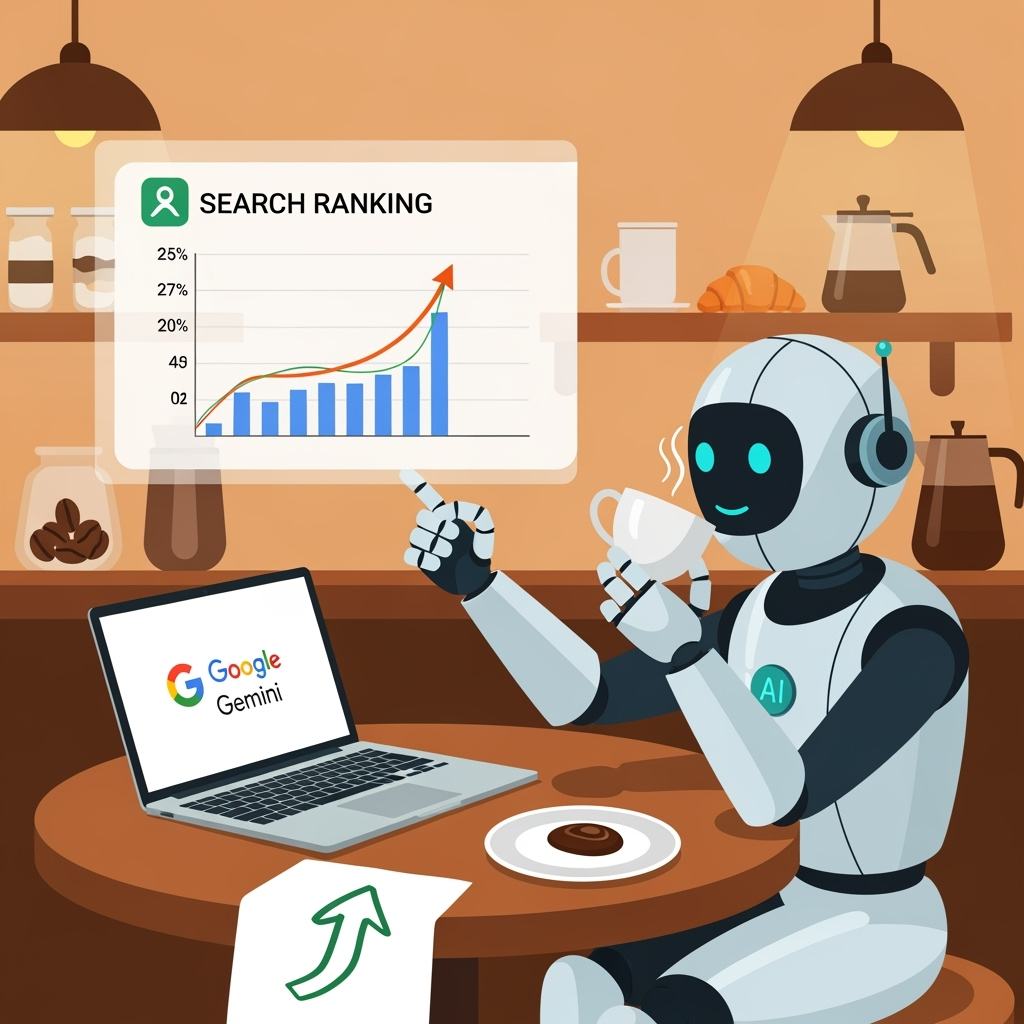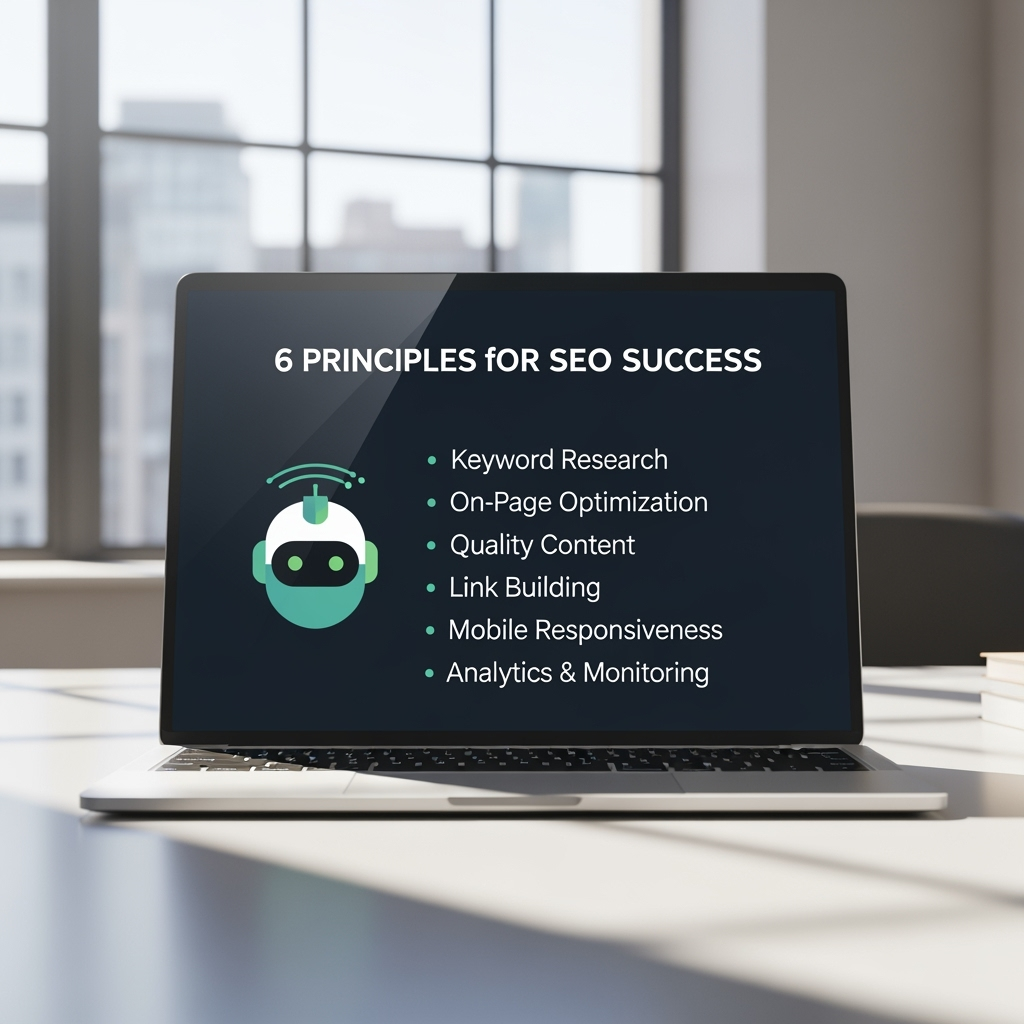Gemini SEO: How to Rank in Google’s AI-Driven Search
Premium, scan-friendly layout with animations and sticky navigation — your SEO copy is untouched.
Start Reading1. What is Gemini SEO and Why It’s Changing the Game

When Google introduced Gemini, it wasn’t just another AI experiment — it was the beginning of a fundamental shift in how search works. As someone who’s been following SEO trends for years, I can tell you that this isn’t about “gaming” an algorithm anymore. It’s about feeding an AI model the kind of content it can confidently present as an answer.
Gemini works differently from traditional search ranking systems. Instead of just showing a list of blue links, Gemini can generate complete answers to user queries. That means the AI doesn’t just index your content — it digests it, understands it, and decides if it’s worth using in its responses.
From my experience, this is where most people underestimate the change: Gemini is a content consumer, not just a search index. If you want to rank in Gemini’s answers, you have to give it clear, useful, and well-structured information that it can directly use in conversation with users.
In my own testing, I noticed that content with a conversational tone consistently performed better. Gemini’s language model seems to prefer material that feels like a direct, human answer rather than corporate jargon or keyword stuffing. Add in a strong foundation of traditional SEO, and you’ve got the blueprint for Gemini SEO success.
2. How Google Gemini AI Impacts Search Rankings

The impact of Gemini on SEO isn’t subtle — it’s transformational. In the past, search ranking meant making it to the first page of Google results. Now, the primary position is inside Gemini’s generated response box. If you get there, your visibility skyrockets. If you don’t, you might not be seen at all.
One thing I’ve learned is that ranking on traditional Google search is still step one. If your content doesn’t already perform well in standard SEO, it’s highly unlikely Gemini will pick it up. That’s why I always tell people: “Old SEO still helps, if you don’t rank with normal SEO, you will never rank with AI SEO.”
Another big change is that Gemini rewards direct answers to specific questions. It’s not enough to write a long article — you need sections of content that can stand alone as a complete answer. This is where FAQs become critical, and I’ll talk about them more later. Gemini is also more sensitive to trust signals like EEAT (Experience, Expertise, Authoritativeness, Trustworthiness). If your site doesn’t demonstrate credibility, you’ll be invisible to its algorithm.
From a rankings perspective, this means content freshness matters more than ever. AI models favor up-to-date information. In my workflow, I update key articles at least monthly, even if it’s just refreshing stats or examples, because Gemini can pick up on relevance decay.
3. Core Principles for Ranking in Gemini AI Search

Over time, I’ve boiled down Gemini SEO into a set of core principles that I follow religiously:
- Conversational Clarity – Write like you’re explaining something to a friend who asked you a direct question.
- Structured for Machines – Use bullet points, numbered lists, and clear subheadings so the AI can parse your information easily.
- Answer Intent Directly – No fluff before you get to the point. Gemini loves precise answers.
- EEAT-Driven Trust – Showcase your experience, credentials, and proof of expertise throughout your content.
- Regular Content Updates – AI indexes prefer the most current answers available.
- Foundational SEO – Don’t skip traditional optimization: meta tags, headers, internal linking, backlinks.
These aren’t just theories — I’ve tested them. For example, I once had a guide that ranked well in standard search but didn’t appear in Gemini’s responses. After restructuring it with bullet points and a short FAQ section, it started appearing in AI answers within weeks.
If you follow these principles, you’re essentially giving Gemini a “content gift basket” — pre-packaged, neatly labeled, and ready for it to pick up and use.
4. Building AI-Friendly Content: Structure & Style

Creating content for Gemini is less about writing a wall of text and more about making information digestible for an AI reader.
Here’s how I do it:
- Lead with the answer, then expand with details. This makes your content usable as a snippet in AI responses.
- Use bullet points and lists. I’ve seen firsthand that Gemini favors content where it can easily pull steps, facts, or tips.
- Break up text with subheadings so the AI can identify topic shifts quickly.
- Keep sentences short and active — complex sentence structures can get lost in AI parsing.
- Embed FAQs at the end of each section when possible.
From my personal experience, when I tested two similar articles — one long and unstructured, the other concise and sectioned with bullet points — the structured version consistently showed up in Gemini’s generated answers, while the other one never appeared.
Think of your content as a script Gemini can read aloud. If it feels too dense or unclear, it won’t make the cut.
5. The Role of Bullet Points and FAQs in Gemini SEO
If there’s one thing I can’t stress enough, it’s the power of bullet points and FAQs in Gemini SEO.
Bullet Points: They are the AI’s best friend. When Gemini reads your content, bullet points act like neon signs pointing to key takeaways. For example, in my own optimization, adding a short bullet list under each subheading drastically improved AI pickup.
FAQs: These simulate real user questions. Gemini’s training is built on Q&A formats, so having a FAQ section means your page can directly match the AI’s query-response structure. My own rule: at least 5–7 FAQs per major topic.
This isn’t just theory — I’ve seen bullet points and FAQs pull entire sections of my content into Gemini’s generated answers. It’s like giving the AI pre-packaged answers, and it loves that.
6. Why EEAT Matters More Than Ever in AI Search
EEAT — Experience, Expertise, Authoritativeness, Trustworthiness — has been around in SEO for years, but with Gemini, it’s a ranking gatekeeper.
From my own work, I’ve seen that AI models are far less forgiving of low-trust sources. You need:
- Author bios with credentials.
- References and external citations.
- Evidence of real-world experience.
For example, when I share my own experience testing Gemini SEO strategies, I’m not just filling space — I’m proving I’ve been there and done it. AI uses those credibility signals to decide whether to use your content.
If your content doesn’t show EEAT, it doesn’t matter how perfectly optimized it is — Gemini will skip it.
7. Traditional SEO is Still the Foundation
A mistake I see often is people trying to “skip” normal SEO because they’re targeting AI results. That’s a shortcut to nowhere.
I always say: “Old SEO still helps.” If your site doesn’t have:
- Optimized titles and meta descriptions.
- Relevant internal and external links.
- Mobile-friendly design.
- Fast loading speeds.
…you’re already losing the battle before Gemini even reads your page. AI-driven search builds on top of the existing ranking framework — it doesn’t replace it.
8. How to Keep Your Gemini SEO Content Fresh

One of my personal rules for AI SEO is: never let a key page go stale.
I’ve seen content that ranked in Gemini disappear after a few months, not because it was wrong, but because it was outdated. Gemini prefers the most current, authoritative answer available.
I make it a habit to:
- Update statistics.
- Add new examples.
- Refresh internal links.
- Expand FAQ sections.
This keeps the AI coming back to my page as a reliable source.
9. Common Mistakes That Kill Your AI Rankings
Through trial and error, I’ve learned what NOT to do:
- Writing overly long, unstructured paragraphs.
- Ignoring bullet points and FAQs.
- Focusing only on AI optimization and neglecting traditional SEO.
- Letting content go stale.
- Skipping EEAT elements.
Avoid these and you’re already ahead of most competitors.
10. Future of AI-Driven SEO: Preparing for What’s Next
Gemini is just the start. AI search will keep evolving, and the sites that adapt early will own the visibility. My own prediction? Structured, conversational, trustworthy content will dominate the AI search landscape.
If you start building with that mindset now, you’ll be ready not just for Gemini, but for every AI-powered search model that comes next.
Ready to take your project to the next level?
Stop losing visibility. Request a free SEO audit and discover your website's real potential.
